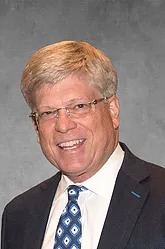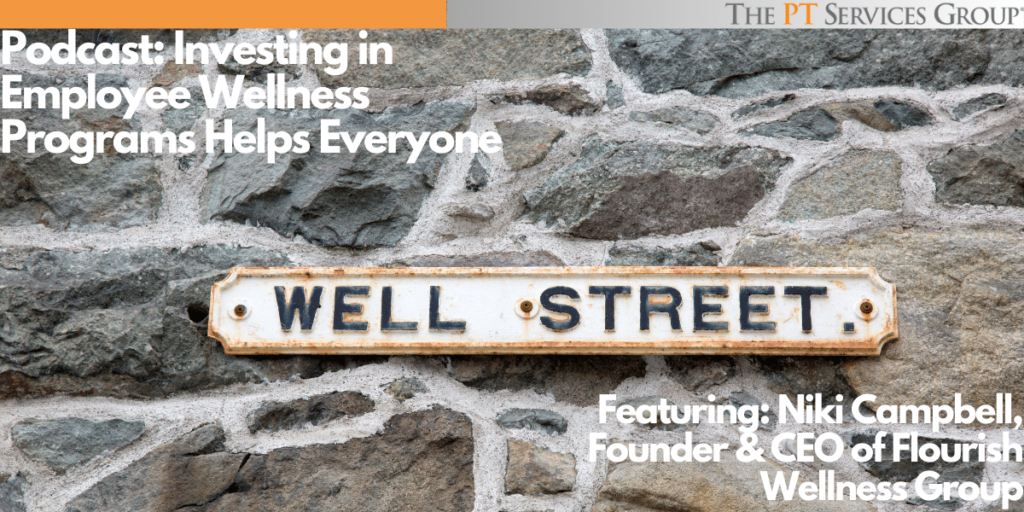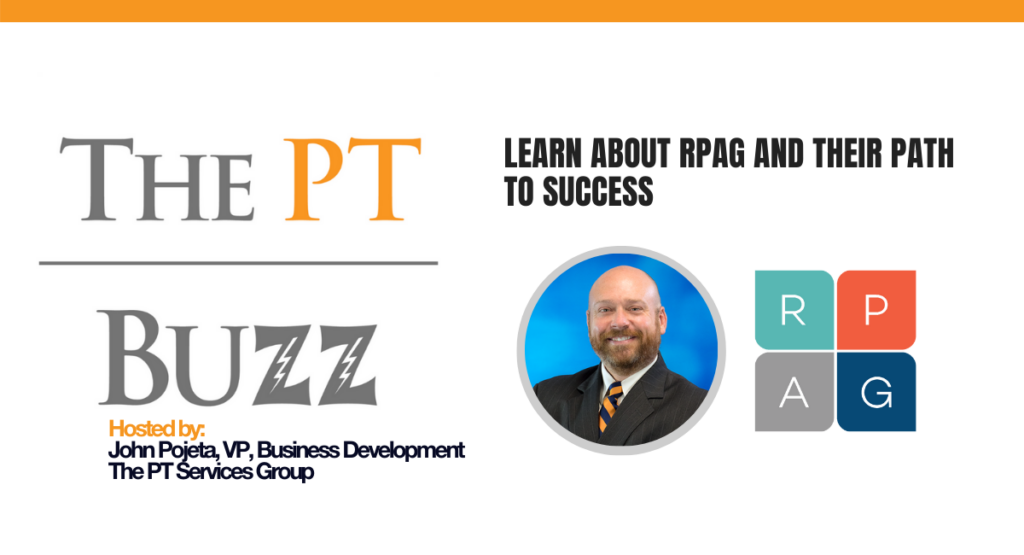Join us for a great conversation in the health care and benefits arena featuring Bill Kite, president of D & S Agency and recent board president of United Benefits Advisors. During this fascinating conversation, Bill shares the history behind the creation of Cherry Tree Collaborative, an employer health insurance initiative that funnels the power of many employers into single-source negotiation that results in the same purchasing advantages experienced by large employers. Bill offers candid thoughts about the challenges of the field and what may lay on the road ahead.
Where to Listen/Subscribe














Podcast Resources:
Any and all resources we mentioned in the podcast can be found here. Looking for something not here? Contact us, we’d love to help you out.
Guest Bios:
 Bill Kite, owner of D & S Agency, entered the insurance business in 1976 after graduating with a B.A. in English from Randolph-Macon College in Ashland, Virginia. He holds resident licenses in life, health and consulting and non-resident licenses in several other states.
Bill Kite, owner of D & S Agency, entered the insurance business in 1976 after graduating with a B.A. in English from Randolph-Macon College in Ashland, Virginia. He holds resident licenses in life, health and consulting and non-resident licenses in several other states.
Well versed in PPACA, Bill attended all of the Virginia Health Reform Initiative (exchange) public hearings. Virginia ultimately decided to use the Federally Facilitated Marketplace (FFM). In response to PPACA and other marketplace changes, Bill and his team have put together a self-funding option for clients that has consistently outperformed carrier trends in the area. He actively speaks to groups regarding PPACA and remains a constant student of the employee benefit industry.
Bill is an active partner and board member with United Benefit Advisors (UBA) where the sharing of ideas, information and technology have resulted in best in class service to clients. Through his commitment to sharing wisdom in the industry has was chosen by his peers nationally as the UBA Partner Firm of the Year in 2010. He is a member of the Piedmont Chapter of the National Association of Health Underwriters (NAHU) and actively advocates on behalf of businesses in Washington, D.C., and Richmond, VA, regarding PPACA.
Giving back to the community serving through various nonprofit organizations has been a major focal point for Bill. He also served eight years on the Society of Alumni Board at his alma mater.
Host John Pojeta’s bio: John researches new types of business and manages and initiates strategic, corporate-level relationships to expand exposure for The PT Services Group. John came to The PT Services Group in 2011. Before that, he owned and operated an Ameriprise Financial Services franchise for 16 years.
Podcast Transcript:
John Pojeta: John Pojeta here with PT Services Group. Hope you’re doing well. Welcome back to another episode of the PT Buzz. And today’s a special conversation with Bill Kite and Bill’s a producer in the health and welfare space out of Roanoke, Virginia. He’s affiliated with United benefit advisors. And as always in these conversations, we try and bring to you things that are different unique, have a special feel to them.
And this has just that it’s a conversation around a health care collaborative that he started back in 2012, 2013. And it’s just an interesting conversation around how it came to be the growing pains that he experienced over the years and what he’s looking at going forward in terms of concerns and opportunities.
And it’s just a great dialogue. How are you doing it?
Bill Kite: I’m doing great, John, how are you?
John Pojeta: I’m well, I’m wondering, am I right in saying you’re in Roanoke?
Tap/Click to View Full Transcript
Bill Kite: Roanoke, Virginia. Grown up Virginia apologize to any of those folks out there who have seen our state go from red to blue, but we’re still trying to hang in, right?
No
John Pojeta: doubt, no doubt. So what, what’s the size of Roanoke
Bill Kite: Surrounding area incorporating Virginia tech, which As the Crow flies is about 15 minutes about 200,000 people.
John Pojeta: Okay. So for those who are not familiar with the layout of Virginia, you are Southwest of DC and due west of.
Bill Kite: That is correct.
That’s correct. Yeah.
John Pojeta: Okay. Rather than, and me trying to, to talk about you, can you, can you tell everybody a little bit about your background, what you got, what got you into the health and welfare space? And let’s just start with some of those basics.
Bill Kite: Well, I just out of college, went to work for a company in New York called the equitable.
And from there I was selling life insurance and an opening came in the benefits field and I jumped in. And I liked it. It was a lot more fun talking to the owners of businesses. And from there just progressed I was transferred into the Roanoke area. Love the area, love the mountains. Great place to raise a family, decided to stay here.
And then I’ve just, I’ve just done employee benefits since, since and the late seventies,
John Pojeta: late seventies. Okay. Good stuff. So one of the reasons for everybody’s benefit that I wanted to spend some time with Bill is he has a unique structure to how he engages with, with business owners and decision makers and you position it as a health care collaborative.
Is that, is that correct?
Bill Kite: Yes. I was invited to be part of a big organization call United benefit advisors. There was 130 of us independent owners. And we were on that very early side of PPACA, and we were actually called on Capitol Hill and we did some testimonials with them and the concerns that we had with what they were trying to accomplish.
We saw that it was going to hurt small employers, especially those that had a large male population, because the difference in the male, female rates at that time. And so our concern was that with this legislation if it passes. There was going to be a lot of revenue provisions in it. And we were going to find those small groups are going to end up paying the lion’s share of the cost.
So there had to be a better alternative. And those of us in the business had done something cost self-funding for years, didn’t know a whole lot. Wait, we knew about it in the large market space, but we didn’t know how we were going to take it down to smaller groups. And so as we started figuring out what to do, that was pretty much the brainchild of, of forming a collaborative and getting many companies together viewing them as one risk and that we were hoping was going to control the costs of healthcare going forward.
And for a lot of our clients they have been very blessed that we came up with icons. Yeah.
John Pojeta: W when you say smaller groups, can you define that for
Bill Kite: us? Well, in the original legislation and the patient protection and affordable care act, each state had to decide. What the definition of small was it looked like it was going to be two to a hundred after they did all their fussing.
I think it only ended up that two states ended up being two to a hundred. The rest of them went to two to 50. And so we were just looking for a product that was going to basically help those small employers two to 100, just to collectively. Get together. We knew that self-funding on a group that had few people was almost like a ticking time bomb.
Then I later learned when I met my actuary that we use what credible coverage was and I mean, what credible risk was. And we learned that, you know, they can do some crazy things. These actuaries, when you give them a thousand. Bits of data. You give them a thousand employees with sip codes and their dates of birth, and they can tell you within a few hundred dollars, what the claims are going to be and how they do it.
I don’t know, nor do I want to, but the point is that if we could have some kind of a scale and put enough companies together to get to that thousand, then we had predictability and that was security for those small employers. And that was one thing that the small health insurance business sorely needed was security because these folks sometimes don’t know where they’re going to have the funds to make the next paycheck.
And so if we could make it a little bit more predictable on the cost of health, we had something really special. Yeah. You had a big
John Pojeta: win for them. No doubt. And then you, you branded it as Cherrytree. Can you talk a little bit about how that came to be?
Bill Kite: The actuary that we met Rick bird, it was kind of a product that he’d come up with or a process he’d come up with a 1991 and he put an association together and it worked very well, and he just called it the Cherrytree Collaborative and we like the name, and we certainly couldn’t use the phrase exchange because, because PPA ruined that word forever. No doubt in the first two years. So we decided that we weren’t going to use that since they were, they were failing like crazy. And so anyway, the collaborative, that really is what it is.
You realize. Yeah. Ask people to engage. You teach them how to engage, teach them how to get healthcare at the appropriate levels. And what’s been so much fun is that the employees really like being part of the solution because it’s a big hit out of their paycheck when they’re paying for the cost of their health insurance premiums each month.
So I thought we had a home run. Sure, sure. So.
John Pojeta:: Put that on a timeline for me. W when, when was it live? It’s think about it that way.
Bill Kite: Well, we started the thought process in 2013. It took us a long time to find an actuary and a re-insurance carrier that would play ball with us. Then we had to find a third-party administrator that we, we thought was worth.
And we had, we wanted someone that had a lot of years of experience. So we actually wrote our first group of 17 employees on December the first of 2014. And we did file with the Commonwealth of Virginia at the bureau of insurance, just to let them know what we were doing so that, you know, they couldn’t endorse us obviously, but they could say you do meet all the qualifications and you’ve got everything in line.
They even said they wished us luck. So I, you know, we, that was kind of neat. Sure. No doubt,
John Pojeta: no doubt. So w when you think back to 20 13, 20 14, and in that 12 one, and somebody’s coming in and making the commitment, did you have a vision as to what it would look like today? 6, 7, 8 years later. And are you close to that?
Or how pace that
Bill Kite: I would say that we had a little bit of a school of hard knocks. We grew very quick. And the first couple of years, and then we soon learned that some of the partners that we were using really weren’t strong enough in the space. And so and then we found some of the original clients that we brought on board with Cherrytree.
Didn’t continue to educate and didn’t continue to let us have. And then all of a sudden, we saw some of the loss ratios and things increase. And then when we had to go out and find new vendor partners that could handle the growth that we were having. That’s kind of when a few people left Cherrytree.
It might’ve, might’ve been because we didn’t, we weren’t quite as competitive on the renewal as we should have been. I’ll just leave it that way. And so has it grown to where I thought it would be right now, now? Will it get there? Absolutely. But the players and the vendor partners that we’ve had for the last 15 or 16 months, Are unbelievable.
And an all my years in this business we have a great backroom. It amazes me, John, just how many people there are when you take the re-insurance carriers. And the TPA is, and all the little specialty boutique operations that we have to audit claims and help us through the entire process. It may involve as many as 450 500 people.
So it’s, it’s a large endeavor. We’re very blessed with the partners that we have. And again, I have clients that wouldn’t want to leave this for the world because it’s been so beneficial for them. Sure.
John Pojeta: Sure. One thing you mentioned in there kind of jumped out at me and I think this is true for a lot of us that run any kind of service business, where somebody comes on board and everything seems to line up well for all involved, but when the when the time starts to play out and the implementation and the consistency of that implementation comes into play.
Not everybody. Sort of stays in the process and the right way to get the benefits that upfront everybody was thinking would come out of that. Is that kind of what you’re describing, where the execution didn’t continue for some of those.
Bill Kite: Yes, but I will also say it was the growing pains. Partly our fault that maybe we didn’t ask some people to be part of the Cherrytree collaborative.
Maybe we made a mistake and asked them to be part of it because they weren’t going to fulfill some of the requirements and the things that we need to have done that the whole, the whole science of health care is. Instead, if you can teach people how to use healthcare affect. Big great consumers like they are and everything else in their life and teach them how, but it’s just so infrequent.
They say, I think actuarily that only about 15 or 16% of the people actually meet their deductible in a given year, or you can do, you can do the best employee meetings in the whole world. And these people may not even have only 15% of those people are gonna have a claim. And how many of those people are going to wait until the 10th or the 11th month after you’ve had that?
To have that claim if they do. So, you know, it’s just a very, very moving target that you prepare people as best you can, but are they going to know exactly what to do at the time of their crisis? No. And that’s something else. We built later into Cherrytree with the help desk and having people call in when they need it.
And that’s made a huge difference because now all of a sudden, they know they’ve got it. At their fingertips.
John Pojeta: Sure, sure. Well, it’s an interesting commentary. I don’t know if you had a chance yet, but Malcolm Gladwell put out a new book called the bomber mafia. Have you seen that or read that by chance?
I have not. So there’s a line in there where when the, when the air force was still part of the army, back in the thirties, they talked about a motto they had where they said real progress only comes when you’re unhindered from custom. And what he was saying was the custom of the army was very limiting for them.
And what you’re describing is we’ve all had this customary process of how we garner our health needs, coverage, share all that kind of stuff. And it’s hard to think differently about it. And that’s,
Bill Kite: that’s tough. And the unfortunate thing about COVID is there weren’t many people that gave telemedicine or virtual care a much of a chance, but between March and April of 2020, all of a sudden that industry just was turned up on it.
They were turned upside down because it had a growth to 4000% in that 37-day period. And so then how did all these companies have enough doctors on staff enough? The proper pricing. It just, there was a lot of things that, you know, they had to grow up in a very, in a very short period of time
John Pojeta: quickly.
No doubt. So w when you think about Cherrytree and, and I don’t, I don’t know what kind of timeline of thinking on 3, 5, 10 years, what do you see coming and what do you see as some of the hurdles or struggles and opportunities that you’ll have coming up?
Bill Kite: Well, I think ours has been extremely successful in 2020 Cherrytree returned 30.8% of the total annual premiums to our clients.
Now I know claims were down because of COVID, but still, if you take you know, if your annual premium was a million dollars and at the end of the year, you’ve got a little over 300,000 left. That’s a pretty sweet deal. So for me, it’s been selecting the right clients to be part of our collaborative.
And then once we get in there, we know that we can educate the people that are chronically ill, that, you know, maybe are not getting the appropriate levels of care. We can help them. Just to give you an example of what happened yesterday John A. Guy called up client of mine for a couple of years.
And he said, Bill, I take a seizure medication and there’s $320 a month. Can you help me? Well, of course I asked, give me the name of the medication. And the milligrams turned it over to the one of the folks in the office. Within 15 minutes, we got his medication for the next two years. At $20 a month. He caught you call the guy up.
You tell him what’s going on. And they can hardly get the thank you out because what does 300? And I think the savings for him are exactly $330, but $330 to a family every single month for two years, that’s a big deal. And so those kinds of things are available that people just need the coaching, they need the education.
And I think that’s the biggest thing we try to do at Cherrytree is educate them.
John Pojeta: That’s good stuff. When you think about other producers advisors like yourself in the field, who obviously many of them have been around it, they’ve probably at some degree, certainly in your network of UBA, heard your story to some extent at the least for somebody looking to do something like this in their space, is there something you’d say, hey, these are the.
This is where I’d start, or these are the things to keep in mind because you mentioned the learning curve you’ve had and the things that have gone on. And that experience has to be incredibly valuable for somebody that may want to consider doing just what you’re doing now and trying to replicate it some
Bill Kite: degree.
Well, I think. Everybody should have their little special place to put those special clients that really engage. And that’s what Cherrytree is become for us. Of course, we don’t write every single case and put them in Cherrytree, but there’s, there’s other carriers out there that a lot bigger that have either worked for or been part of for a long time.
But no, I think everybody can do their own thing. Regionally, you find a really, really good TPA that you like working with and you know, that they price things well reference-based pricing is certainly can be a part of this. We don’t normally lead with reference-based pricing, but my point is, is that anybody based upon your market?
And that’s one thing we learned with UVA when we were working on PPA, ACA healthcare is delivered differently in every part of this. Yep. And so we just need to make sure that in your market, you have learned how to be a survivor. If you’re independent, you know what it takes to, to live there, work there, be successful there, but you can definitely adapt this kind of a product and take those groups that are just.
Really in tune to managing the health of their employees and taking care of them and making sure they have they’re able to come to work. There’s all kinds of things that you can do to build these programs. We know anybody who wants to reach out, we would show you how to do that, but it’s a great opportunity for anybody.
Who’s trying to do something in their own community.
John Pojeta: When you, when you think about Uncle Sam and your commentary early on about testifying and the framing and, and you know, all the oddities that can come out of Washington, DC, that, that impact all of us. W what do you. I guess, what, what do you worry about coming out or what makes you pause with, with some of the things that you’re doing or concerns you keeps you up at night?
How are you going to view that? Because who knows what tomorrow will bring coming out of Washington DC?
Bill Kite: I’m laughing because the rude awakening is that I was asked and they. Eight of us in a van that picked us up at the airport and they took us in to Capitol hill. Yeah. And we were going to have these private meetings and we walk into these private meetings now you know, I’ve got gray hair, but I think the oldest person we sat in front of and those meetings besides the legislator, it was about 25 or 26 years old.
And I was just trying to think, gosh, well you people never have never made a payroll. You’ve never worried about. The next payday coming up and your check from blue cross blue shield, didn’t come in to cover your costs. I think that’s the thing that scares me the most is what comes out of Washington.
They just don’t have the day-to-day. Experience that we’ve had, they haven’t had, they haven’t had that client come up and are the employee come up and said, my $10,000 Bill did get paid? What do we do? And so those are the things that Congress scares me. The most of is sometimes they put some things in place that they really don’t know how it affects real people.
John Pojeta: Yeah. The unintended consequences can be intense. So, yeah. So let’s go back to the industry side for a moment, and we’ve seen a fair bit of consolidation. A lot of the producers and advisors we work with and have for years are no longer independent, maybe a Gallagher or one digital came along and wrote a check.
W what do you see happening in that space over the next several years? Do you see more consolidation? Do you see it slowing or even reverting a little bit?
Bill Kite: No, I don’t. I think equity fund managers, when they’re not getting much of a return are going to always be looking for something else. And my dear friends at UVA that have left UVA maybe because they had a very nice equity offer.
You know, they built a practice. They. Made a lot of money for this, their family and their kids, and maybe the next generation as well. They have to look at these things, but these are still going to be equity funds or management. That’s going to roll these things up every three years or so. And my fear is is that those of us that are on the frontline that feel all the pain, we’re basically the family practice of healthcare.
I think that’s going to go away because I think they’re becoming more of sales organizations and sometimes there’s some people that you have to sit face to face with to hear their pain and to see their pain and to solve their problem. And sometimes that’s not, that’s not always over an 800-telephone number or somebody who’s doing customer service from a phone.
I think that’s the thing that, that bothers me the most. And then I like this bottom up. Kind of mentality. When we see things, we go get some smarter people than we are and we help fix it. And sometimes these bigger organizations, Sean, it scares me that it’s more of a, top-down kind of a thing. And I’m not saying that’s the way all the equity firms have done it.
Some of them have left people alone, but what does this do to legislation and fixing things? And in the future, when you have fewer people that are up there advocating for small business. So those are the kinds of things, John, that I’m worried. Yeah,
John Pojeta: it’s tough in the medical field. Personally my family and I, we have a lot of friends who are doctors in the local community and affiliated with the major brands here in Pittsburgh.
And not too long ago, I went in for a checkup and one of the things I caught was the staff literally had me on a clock. And it was a question of how efficient was the doctor being in turning patients through the process. And it really takes away that personal side. And I reached out to one of our friends and he referred me to somebody else.
And that gentlemen literally spent 45 50 minutes with me going through things, making sure I felt good about it. Asked me to email him in a couple of days and I figured maybe he’ll follow up on that. Maybe he won’t. And I sent him an email and five minutes later, I got one back with a couple more questions and just a, an incredible attention to detail.
But really to me its huge. And you’d be hard pressed for me to ever go anywhere else from that type of experience versus being put on a clock. And so I think there’s a lot of aspects of like what you’re describing that in the medical field are interesting and not favorable
Bill Kite: to the user. So I can attest to what you just said.
My wife and I just went through this past year and did exactly the same thing. We wanted somebody who would listen and that’s very important to him. Oh,
John Pojeta: clearly, that’s what you’re describing that you do with your people. And it’s somebody calls you about a medication and you listen, and you work through it and you, you resolve it, and you have that major impact for them.
And the question is, can you do that in some of those bigger organizations or not? And maybe so maybe now.
Bill Kite: Yeah, I think so. I think it’s possible. There you go.
John Pojeta: There you go. So before I let you go, Bill, anything else you want to add? We’re coming around a football season, any team that you particularly follow or something to take us off the beaten path of the, the health
Bill Kite: and welfare.
I am so tired of watching things from afar. I did play a lot of golf this summer. The thing I’m most excited about right now is being this close to Virginia tech and, you know, seeing 50 or 60,000 fans crazy down there. I said, it’ll be certainly nice to see that place rocking and rolling again. No doubt.
And getting back into ACC football that’s right. Some life as we know it. So
John Pojeta: Bill can’t thank you enough. Greatly. Appreciate the time.
Bill Kite: Have a good day, John.
John Pojeta: Thank you, Bill.
Thanks so much everyone for joining me with my conversation with Bill. And please visit us theptservicesgroup.com/buzz.
You can see this episode again from Bill. If you have a comment or a thought on our conversation, please share. You’ll also find other episodes that are available to listen to. And if you’d like to give us some thoughts or, or interesting ideas about future conversations, don’t hesitate. We’d love to hear from you.
Thanks so much. And we’ll see you again next month.






